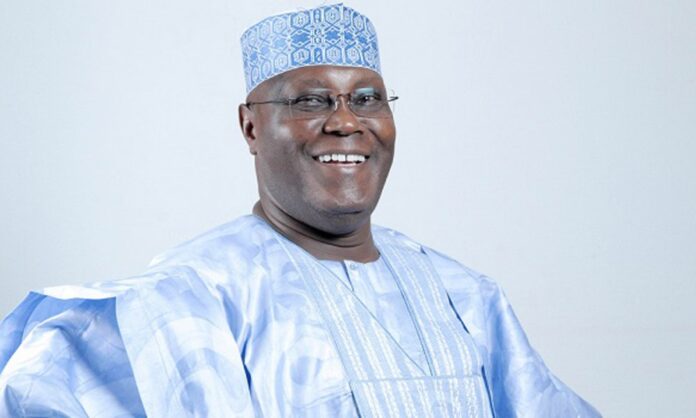Former Vice President Atiku Abubakar marks his 79th birthday today, highlighting yet another milestone in the life of one of Nigeria’s most influential political figures. Atiku, who was born on 25 November 1946, has spent over five decades in public life—first as a customs officer, then as a businessman, politician, and national figure who has contested for the presidency several times.
As congratulatory messages pour in from supporters, political associates, and citizens across the country, many are also reflecting on his long journey in Nigerian politics, his contributions to national development, and his continuing role as a major voice in public affairs.
Atiku Abubakar was born in Jada, in the old Adamawa Province, now part of Adamawa State. Raised by his mother, Aisha, after losing his father at a young age, Atiku’s early life was shaped by modest beginnings. His father opposed Western education, but his death opened the way for Atiku to begin formal schooling. He went on to attend Adamawa Provincial Secondary School before securing a place at the Nigeria Police College, although he later left to join the Nigeria Customs Service.
His time in the Nigeria Customs Service, where he rose to the rank of Deputy Director before retiring in 1989, helped shape his understanding of public administration and the workings of government. During this period, Atiku also began investing in real estate, agriculture, and education—business interests that grew into major enterprises, including the establishment of the American University of Nigeria (AUN), one of the first American-style universities in sub-Saharan Africa.
Atiku’s political journey began in the early 1990s, when he joined the Social Democratic Party (SDP). He became a close associate of the late General Shehu Musa Yar’Adua, one of Nigeria’s most respected political leaders. As part of Yar’Adua’s political family, Atiku built strong grassroots support across several northern states.
He contested for the presidency in 1993 during the SDP primaries but stepped down for the eventual winner, Chief Moshood Abiola. Although the June 12 election was annulled by the military government, Atiku remained active in pro-democracy movements until the return to civilian rule.
Atiku became a national figure in 1999 when he was elected Vice President alongside President Olusegun Obasanjo on the platform of the newly formed People’s Democratic Party (PDP). Their election marked Nigeria’s return to democracy after long years of military rule.
As Vice President, Atiku was placed in charge of the National Economic Council and took a leading role in economic reforms, including privatisation efforts. Supporters say his contributions helped open Nigeria’s economy to private investment, though some of the policies later generated debate.
The relationship between Atiku and President Obasanjo eventually became strained, especially toward the end of their second term. Their disagreements dominated national political discourse at the time, but Atiku continued to seek political office.
After leaving office in 2007, Atiku became one of Nigeria’s most persistent presidential contenders. He has contested for the presidency several times—first in 2007 on the platform of the Action Congress (AC), then in the PDP primaries in 2011, and later as the All Progressives Congress (APC) candidate in the 2014 primaries.
In 2019 and 2023, he secured the PDP ticket and emerged as the main challenger to President Muhammadu Buhari and then to President Bola Tinubu. Although he did not win those elections, Atiku remained a central figure in opposition politics, often commenting on governance, economic policy, insecurity, restructuring, and national unity.
One of Atiku’s strongest positions over the past decade has been his call for restructuring Nigeria’s governance system. He has repeatedly argued that the country’s current structure concentrates too much power at the federal level and limits the ability of states to drive development.
Supporters say his ideas on decentralisation, state policing, and economic liberalisation reflect a forward-thinking approach to Nigeria’s challenges. Critics, however, argue that some of his proposals are politically difficult to implement.
Still, Atiku remains one of the most vocal advocates for constitutional reform in Nigeria.
Beyond politics, Atiku is widely known for his philanthropic work. Through his foundation and personal initiatives, he has supported education, healthcare, and humanitarian projects across northern Nigeria. The American University of Nigeria in Yola, which he founded, has been involved in providing relief to internally displaced persons affected by Boko Haram insurgency.
Atiku has also offered scholarships to hundreds of students and contributed to community development projects. Many of his supporters describe him as someone who believes strongly in giving back and promoting opportunities for young people.
Atiku’s 79th birthday comes at a time when Nigeria faces major economic challenges, rising living costs, and security concerns. As a key opposition figure, he has regularly criticised government policies and called for stronger economic management, better national planning, and urgent measures to ease hardship.
For many Nigerians, his birthday is not only a celebration of a long life but also a reminder of his influence in the political space. Whether or not he plans to contest again in 2027 remains a subject of public speculation. His political allies have continued to encourage him, while critics argue that a new generation should take the lead.
Across social media platforms, friends, supporters and political associates have shared messages celebrating his life and contributions. Many describe Atiku as a leader with resilience, noting that he has remained active in national conversations despite political setbacks.

